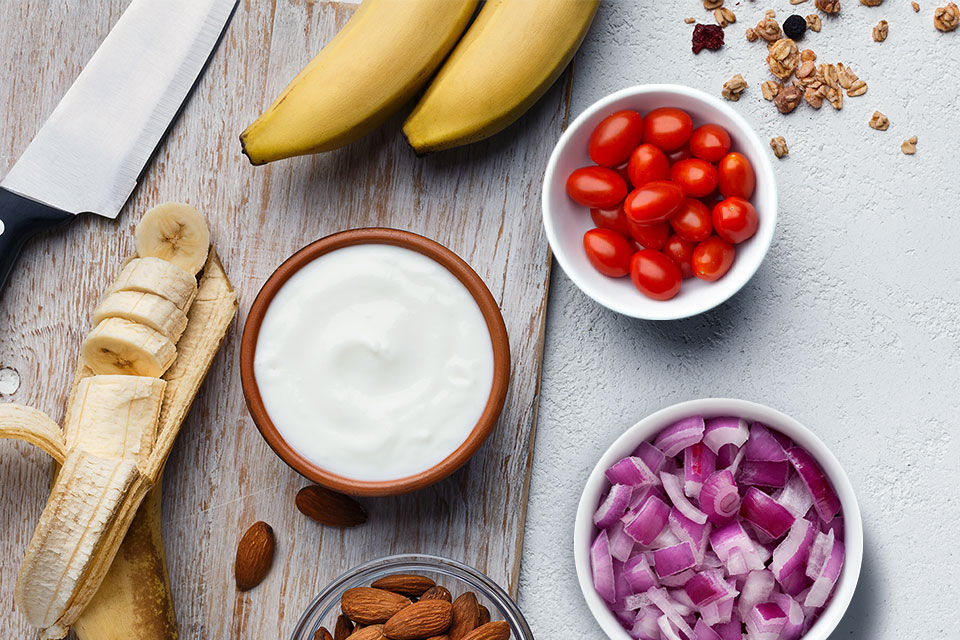Danone Specialized Nutrition (Malaysia) Sdn Bhd supports exclusive breastfeeding for your infant’s first six months of life. After six months of age, infants should receive age-appropriate complementary foods while breastfeeding continues for up to two years of age or beyond. Consult your doctor before deciding to use infant formula or if you have difficulty breastfeeding.
For the past few years, you surely have been hearing a lot about the importance of gut health. In fact, there are more fun things to be discovered about the gut. Do you know that there are actually trillions of bacteria living in the gut and they form a community called the ‘microbiome’?
Research now demonstrates that the brain and the gut are related to one another. They work together to perform different functions such as producing certain vitamins as well as helping the brain to process information from your senses (sight, sound, taste, touch and smell). In a similar way, bacteria in the microbiome communicate with the immune system to help support its development. How does this work?
Impact of Imbalanced Gut Microbiota on Immunity
Maintaining a healthy gut is key, there are several factors that could disrupt the gut balance that potentially leads to poor immune development in children.
Environmental factors such as exposure to pollutants, toxins, and chemicals can alter gut health. Another factor is the use of antibiotics that could disrupt gut microbiome as antibiotics kill both harmful and beneficial bacteria. Research also indicates that C-section still contributes less gut microbiota in children from ages one and above and this impact may take up to 5 years to normalise.

Support Their Immune System
Contact with bacteria in the real world is crucial to developing the immune system. That’s why it’s fine to let your child play in the open and get a little dirty as it is a good exercise for his immune system.
Research has shown that growing-up milk supplemented with prebiotics and probiotics increases the levels of these good bacteria and this may also have a positive effect to his gut microbiome and immune system².
In recent years, there have been a lot of talk about the need to ‘boost the immune system’ to provide a ‘faster and stronger reaction’ when you get an infection. However, research has shown that when the immune system overreacts to an infection it can have a negative effect on your child’s responses to fight harmless infections. That is why what his immune system needs is support, not a turbo charge.
A closer look at Prebiotics & Probiotics
If you are unsure about the differences between prebiotics and probiotics, here’s what you need to know:
Probiotics are the actual live bacteria in your gut, of which there are an estimated 100 trillion of them3. They can be found in some foods, such as yoghurts and fermented foods.
Prebiotics are the bacteria’s food. They are the carbohydrates that help the good bacteria multiply and limit the growth of potential harmful bacteria, leading to better immune system. Prebiotics can be found for example in banana, chicory, onions and tomatoes.
Synbiotic are a combination of prebiotics and probiotics that work together in the gut to have a greater impact – they act like a team to encourage the growth, survivability and effectiveness of beneficial bacteria. When introduced to your child in his early life, prebiotics, probiotics and synbiotics can help create the optimal conditions for his development of his immune system4-5.

As your child grows up, you can start introducing foods that support the good bacteria in his gut, which will continue to benefit his immune system. Prebiotics can be found in bananas, chicory, onions and tomatoes, while Probiotics can be found in yoghurts, pickles, and cheeses such as mozzarella, gouda, cheddar and cottage cheese. Fermented foods like buttermilk, kefir, miso, and sauerkraut also contain probiotics.
Reference:
Mohajeri, M., La Fata, G., Steinert, R., & Weber, P. (2018). Relationship between the gut microbiome and brain function. Nutrition Reviews, 76(7), 481-496. https://doi.org/10.1093/nutrit/nuy009
Xuan, N., Wang, D., Grathwohl, D., Lan, P., Kim, H., Goyer, A., & Benyacoub, J. (2013). Effect of a Growing-up Milk Containing Synbiotics on Immune Function and Growth in Children: A Cluster Randomized, Multicenter, Double-blind, Placebo Controlled Study. Clinical Medicine Insights: Pediatrics, 7, CMPed.S13073. https://doi.org/10.4137/cmped.s13073
Hill, D., & Artis, D. (2010). Intestinal Bacteria and the Regulation of Immune Cell Homeostasis. Annual Review Of Immunology, 28(1), 623-667. https://doi.org/10.1146/annurev-immunol-030409-101330
Michaelis LW, et al. Allergy, EAACI 2016 abstract book, 2016. 71(S102): p3-94.
Haahtela T, et al. World Allergy Organization Journal. 2013; 6(1): 3.

Connect with our team of experts
We provide advice and support for you on your parenthood journey.

